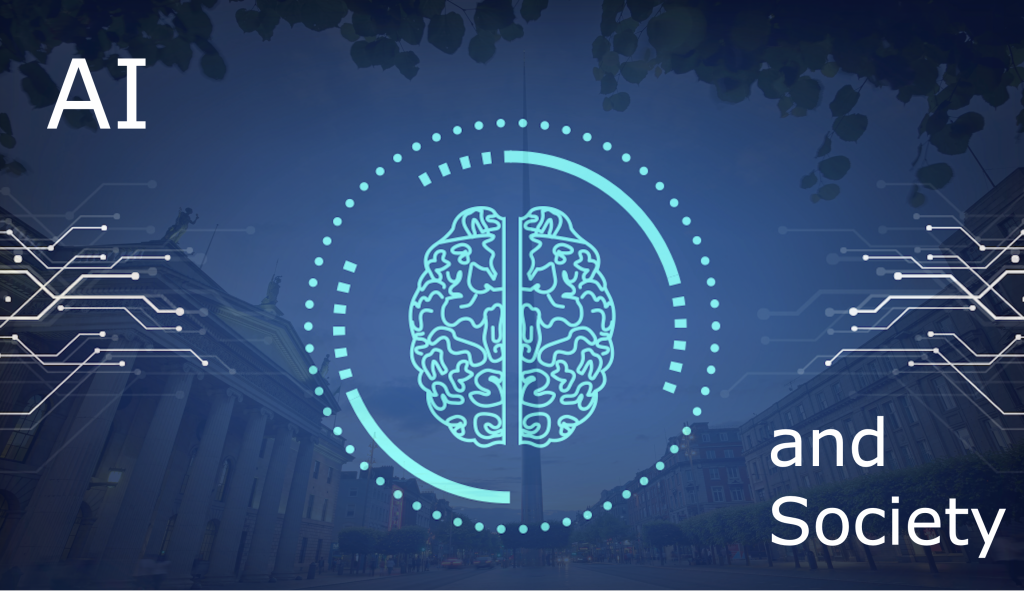
AI and Social Justice: Imagining a Better Future
AI and social justice are at the forefront of contemporary conversations about the future of technology and its impact on society. Many experts, including Ruha Benjamin, emphasize the need for an ethical AI framework that prioritizes human rights and equality. As artificial intelligence technologies increasingly shape our daily lives, understanding their implications on social justice becomes critical, especially considering how these systems can inadvertently perpetuate existing biases. Benjamin’s advocacy for a socially-conscious approach highlights the importance of integrating diverse perspectives, particularly from the humanities, to ensure that technological advancements serve the greater good. By exploring the intersection of AI and social justice, we can work towards a more equitable and just future, harnessing the potential of social justice technology to empower marginalized voices and communities.
The discourse surrounding artificial intelligence and societal equity raises pressing questions about the role technology plays in shaping our values and systems. This critical intersection, where AI technology meets the struggle for fairness, invites us to reconsider how we build and implement these systems. Scholars and leaders in the field of social justice highlight the necessity of developing tools aimed at correcting historical inequities rather than exacerbating them. Ruha Benjamin urges us to cultivate a future where humane considerations drive technological advancements, thus bridging the gap between technical innovation and ethical responsibilities. By engaging with the humanities, we can foster a deeper understanding of the implications of AI and move toward solutions that champion collective welfare.
Envisioning a Future for AI and Social Justice
In discussions about the future of AI, social justice must be at the forefront of our imaginations. As highlighted by Ruha Benjamin, we must challenge the dominant narratives that often frame AI as an inherently progressive force. Instead, it’s crucial to recognize that AI technologies can perpetuate existing inequalities and oppression if left unchecked. The challenge lies in cultivating a critical perspective that questions who benefits from AI advancements and how these technologies can align with the principles of justice and equality.
The responsibility falls on society to envision a future where AI and social justice intertwine. This involves advocating for ethical AI practices that prioritize the welfare of marginalized communities, ensuring that technological advancements do not replicate historical injustices. By fostering inclusive conversations around AI development and implementation, we can work towards creating systems that amplify voices often silenced in mainstream discourse. Ultimately, redefining AI’s purpose to serve humanity equitably is foundational in imagining a better future.
The Ethical Imperative of AI in the Humanities
Incorporating perspectives from the humanities into AI discourse is essential for ethical decision-making. Ruha Benjamin emphasizes that computational depth alone is insufficient; it must be paired with social and historical context to be meaningful. The humanities offer valuable insights into the effects of AI technologies on culture, identity, and social structures, making it imperative that we involve diverse voices in these conversations. By prioritizing humanities-based inquiry, we can explore ethical frameworks that help us navigate the complexities of AI’s impact on society.
Addressing the intersection of AI and humanities leads us towards more responsible and thoughtful technology applications. Engaging with critical theories from fields such as sociology, philosophy, and cultural studies can illuminate the assumptions underlying AI systems. This approach contributes to a broader understanding of technology not just as a tool but as a force that shapes societal norms and values. By integrating ethical considerations into the design and deployment of AI, we can strive for outcomes that uphold dignity and justice, challenging the tech industry to rise above profit-driven motives.
Redefining Progress in Technology
Ruha Benjamin’s critique of technology illuminates the need to reevaluate what progress really means in today’s society. Often, advancements in AI are heralded as breakthroughs, yet they frequently exacerbate societal issues rather than solve them. By framing technological efficiency as progress, we risk overlooking the ethical implications and real-world consequences that arise from automated systems. To truly redefine progress, we must prioritize human-centered values that reflect a commitment to equity and justice in all technological endeavors.
Moreover, the conversation around redefining progress must include a shift in our collective imagination. Instead of accepting a future dictated by tech elites and their dystopian visions, we can work towards a reality shaped by creativity and community engagement. This reimagining of progress underscores the importance of inclusive dialogue, where the voices of artists, activists, and ethicists inform technology development. By envisioning a future that transcends mere efficiency and profit, we can cultivate a society that values the well-being and dignity of all its members.
Creating Inclusive AI Ecosystems
To build an equitable future in AI, creating inclusive ecosystems is paramount. Ruha Benjamin underscores that those designing technology often lack crucial insights into the societal issues faced by marginalized groups. Creating spaces where diverse perspectives are welcomed not only enhances the relevance of technology but also promotes solutions that are sensitive to the needs of all communities. These ecosystems must bridge technical expertise with social understanding, ensuring that the development of AI technologies addresses real-world challenges faced by people.
Inclusivity further extends to educational pathways, where women and minority groups should be encouraged to participate in AI and tech education. Fostering diversity does not only enrich the skill sets within the tech community but also adds layers of understanding to the societal impacts of AI. Engaging a wide range of voices helps to dismantle the barriers that have historically restricted innovation. Building these inclusive ecosystems will require a collaborative effort among industry leaders, educators, and policymakers who are committed to reshaping technology as a powerful tool for social good.
Rethinking AI as a Tool for Cultural Transformation
Benjamin calls for a radical rethinking of AI as merely a tool for cultural transformation rather than an endpoint. The tech industry’s tendency to focus on implementation and profitability often sidelines broader societal goals. Instead of allowing AI to dictate the future, we should view it as a canvas for creativity, one that can help reshape cultural narratives and societal norms. By engaging with the arts and humanities, we can infuse our technological pursuits with the values of empathy, creativity, and imagination.
This framework invites us to explore innovative uses of AI that promote cultural empowerment and social resilience. It is essential to empower artists and creators to leverage AI in ways that challenge the status quo and offer new narratives for consideration. Collaboration between technologists and cultural producers can inspire projects that not only highlight disparities but also present viable pathways towards justice and equality. As we rethink AI’s role in society, we embark on a journey that champions inclusivity, creativity, and the reimagining of our shared futures.
AI and the Vision for a Democratic Society
In envisioning a future where AI serves the public good, we must consider its implications for democracy. Ruha Benjamin asserts the importance of democratizing technology, ensuring that AI development is accessible and accountable to the communities they impact. This shift calls for the active involvement of citizens in AI policymaking and oversight, challenging the monopolistic tendencies of tech companies. By emphasizing democratic values in AI governance, we can work towards technologies that reflect societal needs and enhance participatory processes.
Furthermore, a democratic approach to AI requires transparency and ethical oversight. Public demand for accountability must push tech companies to disclose their methodologies and the social implications of their systems. Promoting transparency enhances public trust and invites critical scrutiny, leading to a more equitable design of AI applications. Ultimately, the integration of democratic principles into AI development is crucial for fostering systems that empower rather than oppress, paving the way for societal advancements that align with shared human values.
The Role of Educators in Shaping AI Perspectives
Educators play a transformative role in shaping how future generations view AI. Ruha Benjamin urges universities to prioritize creativity and imagination, not just technical skills. By integrating social sciences, arts, and humanities into AI education, institutions can cultivate a balanced understanding that transcends mere technical prowess. This holistic approach enables students to appreciate the ethical dilemmas and societal impacts of AI technology, preparing them to be thoughtful innovators and responsible leaders.
Moreover, educators can foster critical thinking that questions the ethical implications of AI systems and advocates for social change. By encouraging students to engage with real-world problems through interdisciplinary lenses, future technologists can develop solutions that prioritize inclusivity and justice. This teaching philosophy empowers students to envision innovative futures that challenge the narratives pushed by tech elites and advocate for a more equitable society. Ultimately, the role of educators is essential in nurturing an informed generation that is capable of transforming technology into a force for good.
Lessons from History: AI and Social Inequities
When discussing the implications of AI technologies, it’s vital to recognize the historical patterns of social inequities that can resurface through digital advancements. Ruha Benjamin emphasizes that AI should not be viewed as a neutral tool; instead, it must be considered within historical contexts that reflect systemic biases and existing power dynamics. Learning from the past, particularly the legacies of eugenics and social engineering, helps illuminate the dangers of algorithmic decision-making that perpetuates discrimination and inequality.
By studying these historical precedents, we can develop frameworks that actively work against harmful biases in AI. It is crucial to scrutinize the data sets used to train AI systems for inherent prejudices that can lead to unjust outcomes. Embracing history as a teacher not only offers insights into potential pitfalls but also helps inform strategies to design technology that reflects ethical imperatives and prioritizes social justice. Confronting these historical lessons equips us with the tools to build AI systems that foster equity and challenge oppressive structures.
Imagining Futures Beyond Surveillance and Policing
Benjamin encourages us to envision futures that transcend current paradigms of surveillance and policing, framing this as not just idealistic but essential for our collective well-being. The challenge lies in reimagining how technology can cultivate safety and community without resorting to invasive measures. By questioning the narratives that depict surveillance technologies as necessary for security, we open up possibilities for alternative approaches that prioritize human rights and social values.
Imagining futures beyond policing aligns with broader movements advocating for defunding oppressive systems and reinvesting in community services. AI can play a role in these transformations by supporting innovations in public services that enhance accessibility and equity. By fostering environments that prioritize community well-being over control, we can envision and create technological futures that enrich lives instead of constraining them. This reimagined vision is rooted in collaboration, empathy, and a commitment to dismantling societal structures that undermine justice and dignity.
Frequently Asked Questions
How does AI impact social justice according to Ruha Benjamin?
Ruha Benjamin argues that AI technologies often perpetuate social injustices, rather than alleviate them. She highlights that systems like facial recognition and automated healthcare triage can exacerbate oppression, particularly for marginalized communities. By framing AI as a morally neutral tool, we risk repeating historical harms, similar to those seen during the eugenics movement.
What are the ethical implications of AI in social justice?
The ethical implications of AI in social justice are profound. Technologies labeled as efficient can lead to unfair outcomes, as algorithms may misrepresent or fail to account for diverse societal needs. Ruha Benjamin emphasizes the necessity of incorporating social and historical knowledge into AI’s design, ensuring that these systems serve the collective good rather than reinforcing existing inequalities.
What does Ruha Benjamin suggest for the future of AI in relation to social justice?
Ruha Benjamin suggests that the future of AI should prioritize creativity and imagination over purely technical solutions. She argues for a reimagining of technology that moves beyond oppressive systems, advocating for public goods and inclusive discussions about technology’s role in society. By integrating insights from the humanities, we can create AI systems that are genuinely beneficial and equitable.
In what ways can AI be used as a tool for social justice?
AI can be leveraged as a tool for social justice by designing systems that inherently prioritize equity, transparency, and fairness. By critically engaging with the technology’s development, as Ruha Benjamin advocates, we can ensure that AI addresses societal issues like healthcare access, criminal justice reform, and educational equity, rather than exacerbating disparities.
What is meant by ‘ethical AI’ in the context of social justice?
‘Ethical AI’ in the context of social justice refers to the development of artificial intelligence that promotes fairness, accountability, and responsible use. It calls for awareness of the biases inherent in data and algorithms, advocating for practices that prevent harm to marginalized groups. Ruha Benjamin stresses the importance of involving diverse stakeholders in shaping ethical AI standards to safeguard against perpetuating historical injustices.
What role do the humanities play in shaping AI for social justice?
Humanities play a vital role in shaping AI for social justice by providing critical perspectives on societal values, moral decision-making, and historical context. Ruha Benjamin argues that technological solutions should be informed by insights from the arts and humanities, enriching our understanding of humanity, thereby guiding the ethical development and implementation of AI tools.
| Key Point | Description |
|---|---|
| Radical Imagination | Benjamin argues that citizens should not fear imagining a radically different future, as tech elites do. |
| Distrust in Tech Elites | She warns against trusting billionaires, discussing their self-interested motives rather than altruism. |
| AI as a Source of Oppression | AI technologies often perpetuate oppression, with examples like biased facial recognition and healthcare systems. |
| Critique of AI’s Objectivity | Benjamin critiques the idea that AI can make moral decisions based purely on algorithms. |
| Need for Diverse Knowledge | She emphasizes the importance of including social perspectives in technology development. |
| Rethinking Future Innovations | Calls for a re-evaluation of what constitutes innovation, focusing on public goods over dystopian tech. |
| Creativity in Inquiry | Urges universities to promote creativity and inquiry in arts and humanities as societal solutions. |
Summary
AI and social justice remain critical topics for contemporary society. Ruha Benjamin’s insights encourage us to envision futures that prioritize equity and creativity over self-serving technological innovation. By advocating for a diverse set of knowledges and innovative public goods, Benjamin challenges us to reimagine not just technologies but also the very fabric of our societies to ensure that the advancements made in AI truly serve humanity at large.


